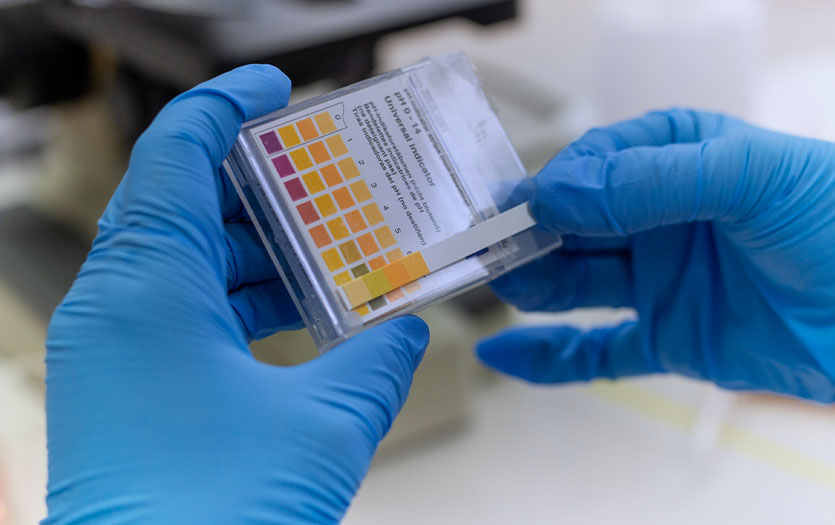
Many of us have or will experience a traumatic event in our lifetime. Maybe it’s an accident, or you’re the victim of an attack. For some, military service can lead to lingering thoughts of war. While these experiences can create mental health distress, support from friends, family and counselors, can help us work through trauma. For some, however, their trauma leads to increased stress and additional mental health issues, a diagnosis known as post-traumatic stress disorder (PTSD). Below, we will take a deeper look at PTSD, including potential causes, treatment options and how to get help.
Defining post-traumatic stress disorder (PTSD)
PTSD is a mental health diagnosis that can result from being in or seeing one or more traumatic events. These events might include combat, a natural disaster, sexual or physical violence, or a serious accident.
PTSD can cause a range of emotions, from fear to confusion to anger. Many describe feeling "on edge." This mental state can cause a lot of distress and affect daily life and relationships. Fortunately, many people see improvement with treatment.
Watch our video: Understanding PTSD.
Symptoms
PTSD symptoms usually start soon after the traumatic event, but this can vary. Some don’t experience mental health distress for weeks, months or even years. The symptoms can also come and go.
You may have PTSD if you:
- Feel upset by things that remind you of what happened.
- Have nightmares, vivid memories or flashbacks of the event.
- Avoid places or things that remind you of what happened.
- Feel bad about yourself and the world.
- Feel numb or lose interest in things you used to care about.
- Feel that you're always in danger.
- Feel anxious, jittery or irritated.
- Have trouble sleeping or concentrating.
Children can also experience PTSD. Many will experience the feelings mentioned above, but express it differently. For example, young children may act out trauma through play, but older children may engage in risky behaviors.
Diagnosis
There is no medical test to diagnose PTSD. Your doctor will ask you about your symptoms, how long you've had them and how much they affect your daily activities.
Your provider may also ask about:
- The event or events that led to your symptoms.
- Traumatic events in your past, including those from childhood.
- Whether anyone in your family has had a mental health problem.
- Whether you have any suicidal thoughts or thoughts of harming others.
You may also have a physical exam or lab tests to check for signs of injury or other medical problems that may be causing your symptoms. Your doctor will also check to see if you have other mental health problems like depression or substance use disorder.
Your doctor may want your spouse, partner or close family member to come with you. This person can help your doctor understand what you've been going through.
Treatment
Medicines and counseling are used to treat PTSD. Treatment can help you to feel more in control of your emotions, have fewer symptoms and enjoy life again.
- Counseling comes in many types of therapy that focus on the trauma to help you get better. Most therapies use cognitive-behavioral therapy (CBT) techniques to help you understand your thoughts and learn ways to cope with your feelings.
- In prolonged exposure therapy, you talk about the traumatic event as if it were happening again. You may also be exposed to places or things that are related to the event. You do these things until you have less fear.
- With cognitive processing therapy, you learn to change negative emotions and thoughts related to the trauma.
- Antidepressant medicines, especially selective serotonin reuptake inhibitors (SSRIs) can help with many PTSD symptoms. SSRIs include fluoxetine, paroxetine and sertraline.
You may need to try different types of treatment before you find the one that helps you. Your doctor will help you with this. These treatments may include other types of medicines and other forms of counseling, such as group counseling. If you have other problems along with PTSD, such as overuse of alcohol or drugs, you may need treatment for those, too.
Care and concerns
If you have been diagnosed with PTSD and are concerned about your use of alcohol, illegal drugs or other substances, there are some things you can do.
- Learn about PTSD. This can help you better understand how and why it affects you. You may also learn about healthy ways to manage PTSD.
- Learn about substance use disorder. You could learn about the symptoms. And it may be helpful to understand how PTSD and substance use disorder are connected.
- Talk to your doctor about your concerns. You could ask your doctor about treatments that help with both PTSD and substance use disorder.
- If you don't have a counselor, consider finding one. A counselor can help you process your experiences and learn skills to cope. Look for a counselor who has experience helping people with PTSD and substance use disorder.
- Seek support. Ask for help from people who understand what you're going through and who care about you. This could be a support group for people with PTSD and substance use disorder. It could also be close family members or friends that you trust.
- Take your medicines exactly as prescribed. Call your doctor if you're having a problem with any medications.
When it is time to call for help.
Call 911 anytime you think you may need emergency care. For example, if:
- You feel you cannot stop from hurting yourself or someone else.
- You feel hopeless or think of hurting or killing yourself.
Where to get help 24 hours a day, 7 days a week
If you or someone you know talks about suicide, self-harm, a mental health crisis, a substance use crisis or any other kind of emotional distress, get help right away.
- Call the Parkview Behavioral Health (PBHI) HelpLine at 260-471-9440 or toll-free at 800-284-8439.
- Call the Suicide and Crisis Lifeline at 988.
- Call 1-800-273-TALK (1-800-273-8255).
- Text HOME to 741741 to access the Crisis Text Line.
- Go to 988lifeline.org for more information or to chat online.
Watch closely for changes in your health, and be sure to contact your doctor if:
- Your PTSD symptoms are getting worse.
- You have new or worse symptoms of anxiety or depression.
- You are not getting better as expected.
To learn more about counseling and other mental health services near you, call the PBHI HelpLine or visit Parkview.com/PBHI.
Copyrighted material adapted with permission from Healthwise, Incorporated. This information does not replace the advice of a doctor.



